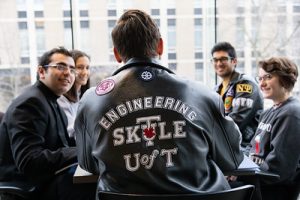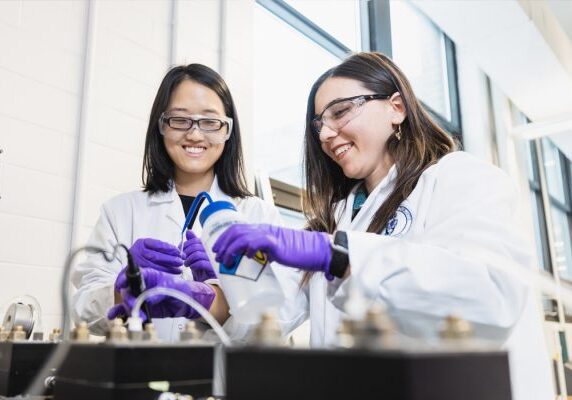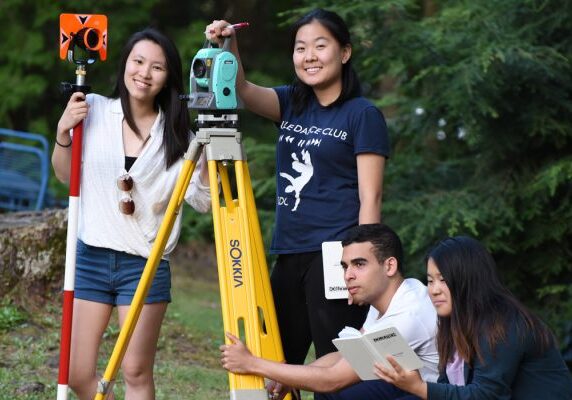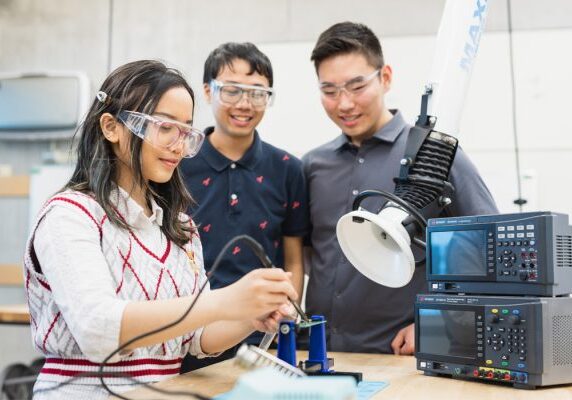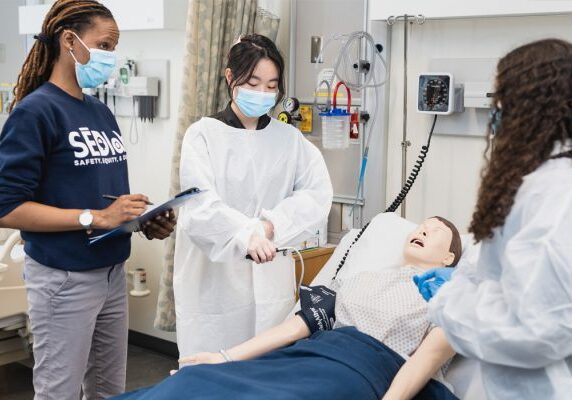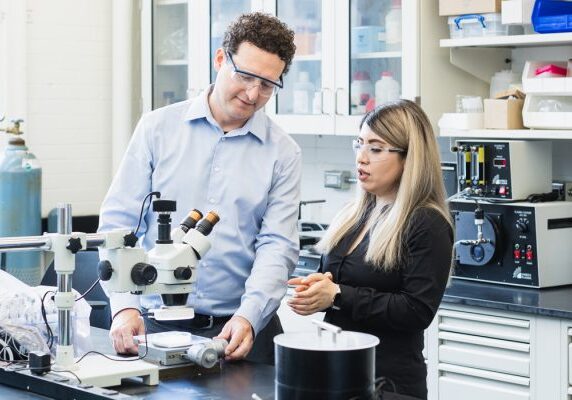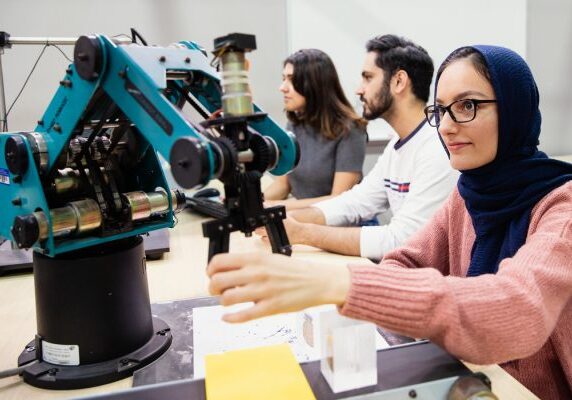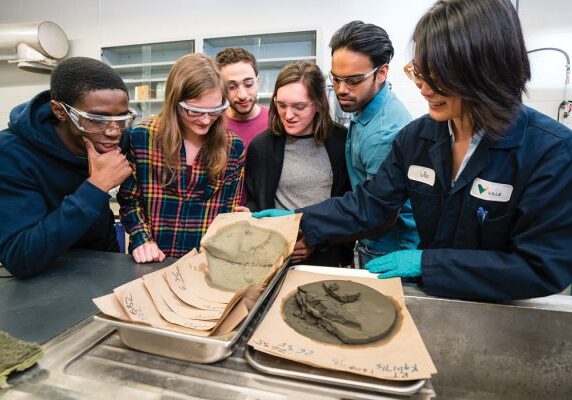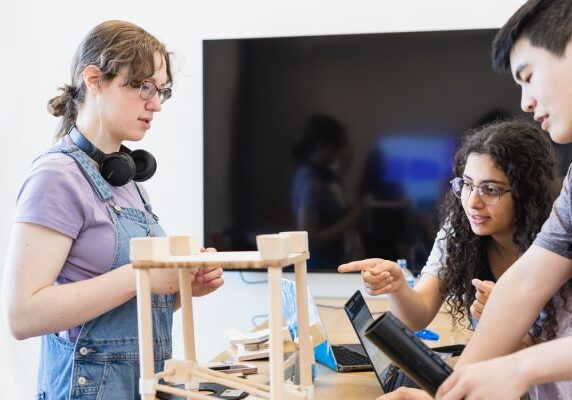Practical Experience Requirement
As a part of your U of T Engineering experience, you will gain a minimum of 600 hours of practical experience. This ensures that you obtain significant experience with professional responsibility before graduation. Your 600 hours may be fulfilled at any point during your degree and can include many facets, from working in industry to conducting research. Successful completion of the Professional Experience Year Co-op Program automatically satisfies this requirement.
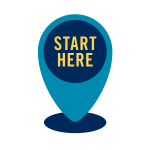
APPLY
During the application process, you’ll decide how you want to begin your journey at UofT Engineering.
There are two pathways you can choose from:
Core Programs OR Engineering Science
CORE PROGRAMS
Core 8, Declared Engineering
If you know what you want to study during your degree, you can apply directly to a Core 8 program:
TrackOne, Undeclared Engineering
If you’re unsure of how you’d like to focus your first year, the TrackOne program allows you to explore several areas across engineering. At the end of first year, you will declare which of the Core 8 programs you will join in second year for the remaining three years of your undergraduate degree.
First year is about establishing fundamental knowledge in math, applied and basic sciences, and design. For this reason, the first-year curricula for the Core 8 programs and TrackOne are very similar. Topics covered in the first year of all Core Programs include:
- Math (linear algebra, calculus)
- Physics
- Chemistry (physical chemistry and/or materials science)
- Programming (Python or C)
- Engineering Design, Communication and Practice
Expand your knowledge with more courses in your discipline. Gain a greater depth of understanding through enhanced lab experiences and design opportunities.
Deepen your knowledge further by choosing an area of focus within your Core 8 program. Consider taking electives that allow you to complete a multidisciplinary minor or certificate .
If you opted into the PEY Co-op Program, this year is particularly important in preparing for your 12- to 16-month position after third year.
Apply the competencies and knowledge you’ve developed with the opportunity to complete a team-based design project.
ENGINEERING SCIENCE
Engineering Science (EngSci) is a direct-entry program designed for those seeking a unique academic challenge. The first two years of the program — called the Foundation Years — are common to all EngSci students. In the latter half of your program, you will specialize in one of eight exciting majors.
The Foundation Years establish breadth and depth in mathematics, science, engineering principles and design. Topics include but are not limited to:
FOUNDATION YEAR 1
- Calculus, Algebra
- Mathematical Computation
- Programming (Python and C), Algorithms
- Electric Circuits
- Physics, Chemistry
- Engineering Design, Communication and Practice
FOUNDATION YEAR 2
-
Ordinary Differential Equations, Probability and Statistics, Vector Calculus
-
Digital and Computer Systems
-
Quantum Mechanics, Thermodynamics
-
Electromagnetism, Waves
-
Systems Biology
-
Engineering, Society and Critical Thinking
With the Foundation Years behind you, you will now focus your studies on one of eight EngSci majors.
If you opted into the PEY Co-op Program, this year is particularly important in preparing for your 12- to 16-month position after third year.
Within your EngSci major, you’ll have the opportunity to apply your knowledge, competencies and talents through a team-based design project and an individual research thesis.
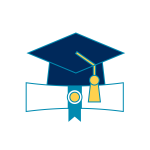
UPON GRADUATION
Whether you plan to work in industry, start your own business or pursue further studies, a U of T Engineering degree will enable you to advance in any number of career directions — with confidence. All of our programs are fully accredited*. Students in the Core Programs graduate with a Bachelor of Applied Science (BASc) and Engineering Science students graduate with a Bachelor of Applied Science in Engineering Science (BASc in EngSci).
* Canadian Engineering Accreditation Board

